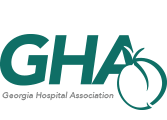Prescription drug abuse and addiction have been major contributors to the opioid epidemic that continues to inflict such significant damage in Gwinnett County and throughout northern Georgia.
CDC Opioid Statistics
According to the U.S. Centers for Disease Control and Prevention (CDC), 1,206 Georgians died as a result of opioid overdose in 2014. This marked an increase of more than 10 percent from the number of Georgians who died from an opioid overdose in 2013, making Georgia one of 14 states to be identified by the CDC as having a statistically significant increase in opioid-related deaths during that one-year period.
In a separate report, the CDC noted that, in 2014, at least 50 percent of all opioid overdose deaths involved a prescription painkiller.
Where to Dispose of Your Medications
One important step that every person can take to help stem rising rates of prescription drug abuse is to safely dispose of all prescription medications that they no longer need.
Gwinnett Clean and Beautiful, a nonprofit organization that is dedicated to community improvement and environmental health, reports that people in Gwinnett County who have prescription medications that they no longer need can bring them to the following places:
City of Duluth Police Department
- 3276 Buford Hwy, Duluth, Georgia 30096
- Phone: 770-476-4151
- Hours: 8 a.m. to 4:30 p.m.
City of Liburn Police Department
- 76 Main Street, Liburn, Georgia 30047
- Phone: 770-921-2211
- Hours: 8 a.m. to 4:30 p.m.
Gwinnett Sheriff’s Department
- 2900 University Parkway, Lawrenceville, Georgia 30043
- Phone: 770-619-6500
- Hours: 24/7
Whole Foods of John’s Creek
- 5945 State Bridge Rd., Duluth, Georgia 30097
- Phone: 678-514-2400
- Hours: Mondays to Saturdays, 8 a.m. to 10 p.m.; Sundays, 9 a.m. to 9 p.m.
Other Advice for Disposing of Your Medications
If you cannot bring your outdated or unneeded prescription medications to one of the locations listed in the previous section, the Georgia Department of Law’s Consumer Protection Unit (CPU) offers the following tips for safely disposing of prescription medications:
- Always follow any disposal instructions on the label.
- Do not dispose of prescription medications in the sink or toilet.
- Keep your medications secure until your community sponsors a drug take-back day or similar event.
For individuals who wish to dispose of prescription medications in the garbage, the CPU provides the following advice:
- Remove the prescription medications from their original containers.
- Mix the prescription drugs with cat litter, used coffee grounds, or another undesirable item.
- Put this mixture into a sealed bag or other containers
When getting rid of unneeded prescription medications, do not forget to protect your personal information when safely disposing of the bottles or other containers that they came in. If possible, peel the label off of the container. If you cannot remove the label, use a pen or magic marker to block out your name and contact information, the name of the medication, and the identity of the prescribing physician.
In addition to preventing substance abuse, following the tips on this page to dispose of your prescription medications will also ensure that they are not accidentally ingested.





